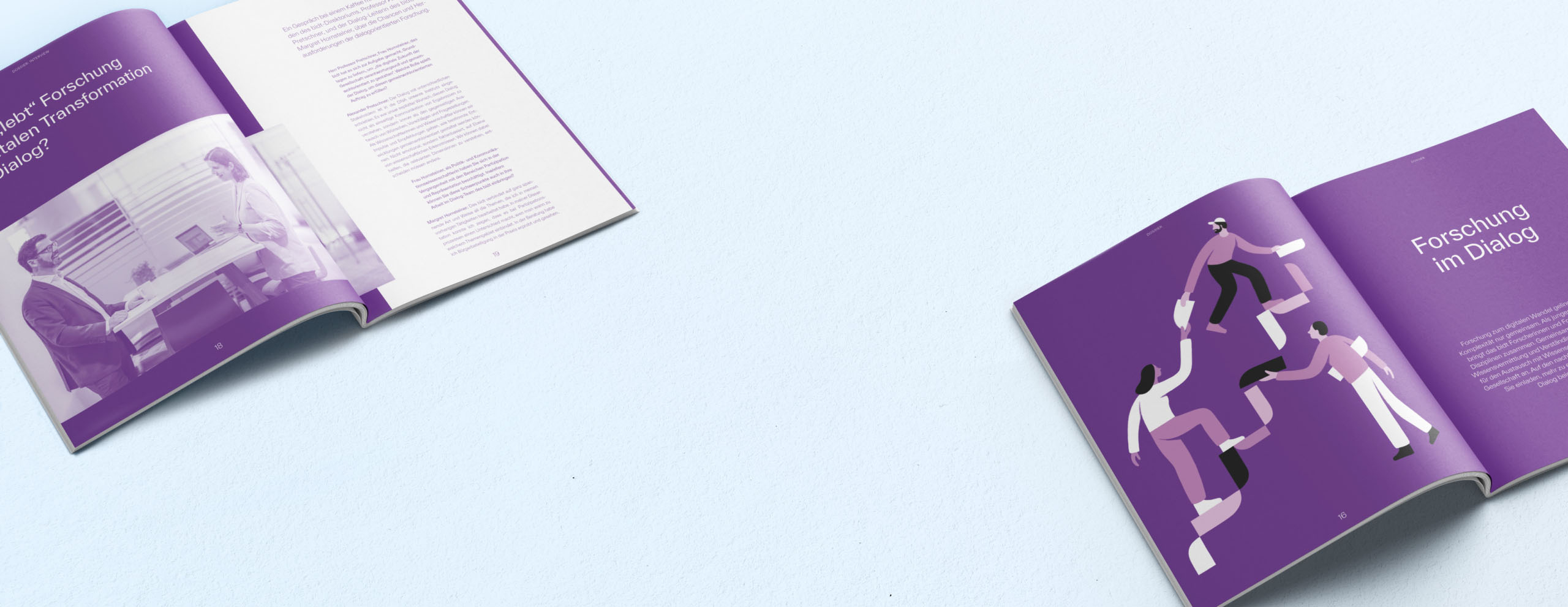our MissionUnderstanding Digital Transformation – Shaping the Future Together
Digitalisation permeates all areas of life
Digital technologies affect each individual’s day-to-day existence. They not only alter the way we communicate and work together, but also influence social interactions and political processes. For companies and employers, technological change has far-reaching implications for their business development and competitiveness on a global scale.
As an institute within the Bavarian Academy of Sciences and Humanities (BAdW), the Bavarian Research Institute for Digital Transformation (bidt) contributes to a better understanding of the developments and challenges in digital transformation. We thereby provide the foundations to responsibly shape society’s digital future, oriented towards the common good.
The institute at a glance

We examine the opportunities and challenges of digital transformation
How does social media change public discourse? What impact does China’s social credit system have on German companies? And how do humans and machines work together? The bidt supports internationally outstanding research in the areas of ‘Government, Regulation and Infrastructure’, ‘Communication, Society and Participation’ and ‘Economy and Labour’.
Researchers from various disciplines, universities and institutions across Bavaria work together in consortium projects on socially relevant issues. In internal projects, scientists at the bidt also conduct research on current challenges of digital transformation. All projects are interdisciplinary, promoting the networking and international visibility of digitalisation research in Bavaria.

We promote outstanding interdisciplinary research
We give a fact-based picture of digital transformation
The bidt think tank provides decision-makers in politics, the economy and society with scientific evidence, and up-to-date data and analyses.
The team aggregates studies and essential indicators of digitalisation. Continuous monitoring and benchmarking of the digital transformation allow the bidt to track changes and trends in Germany and draw international comparisons.
We are a dialogue organisation
The bidt defines itself as an interface between research, politics, the economy and society. Scientific findings are made accessible to the public via various channels, presented in a comprehensible way.
The bidt promotes open dialogue between research and society and organises events and lectures on relevant topics. This constant, reciprocal interaction allows questions from within society to be fed back into our research, thus ensuring the social relevance of the work at the bidt.



